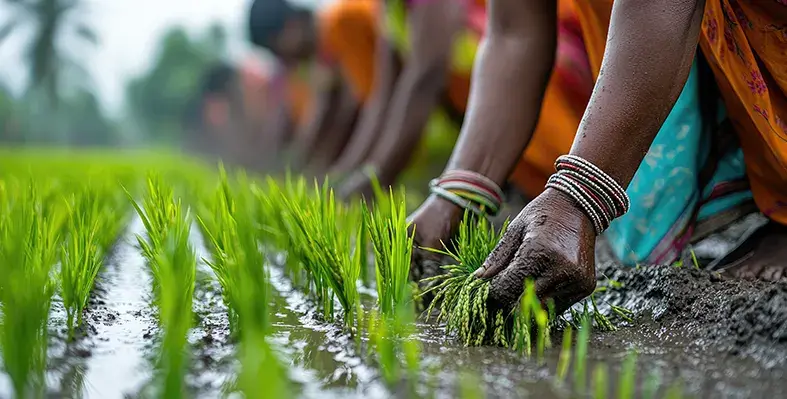In a significant step towards empowering India’s agricultural sector, the Union Cabinet, under the supervision of Prime Minister Narendra Modi, has approved the ‘Prime Minister Dhan-Dhaanya Krishi Yojana’
The scheme, set to from 2025-26 financial year, targets 100 selected districts, marking a pioneering initiative aimed solely on agriculture and its allied sectors. It focuses to transform agricultural practices and productivity, especially in regions with underperforming agriculture. These 100 districts will be chosen based on three key factors: low productivity, low cropping intensity, and limited access to agricultural credit. The allocation of each state will depend on the proportion of net cropped area and the number of operational holdings, ensuring that every state and Union Territory is represented by at least one district.
The main agenda of the Dhan-Dhaanya Krishi Yojana are to improve agricultural productivity, encourage crop diversification, and promote sustainable farming practices. The scheme will also work to improve irrigation systems, strengthen storage infrastructure at the block and panchayat levels, and facilitate both short-term and long-term credit access for farmers.
A standout feature of the scheme is its convergence approach, which brings together 36 existing initiatives from 11 central departments into a unified framework. This integrated development plan will also involve collaboration with state-level efforts and private sector partnerships.
On the ground, a three-tier committee system will be set up at the district, state, and national levels to ensure effective planning, coordination, and monitoring. At the district level, the District Dhan-Dhaanya Samiti, including progressive farmers, will be tasked with creating localised plans that align with national objectives, such as soil and water conservation, promoting organic farming, and achieving agricultural self-sufficiency.
To guarantee transparency and accountability, the progress of each district will be tracked using 117 Key Performance Indicators (KPIs), monitored through a digital dashboard on a monthly basis. Central Nodal Officers will be appointed for each district to conduct regular assessments, with NITI Aayog playing a key role in guiding and evaluating the implementation at the district level.
This multi-stakeholder approach promises to bring significant improvements to India’s agricultural landscape, making it a comprehensive, integrated effort to foster long-term agricultural growth.




